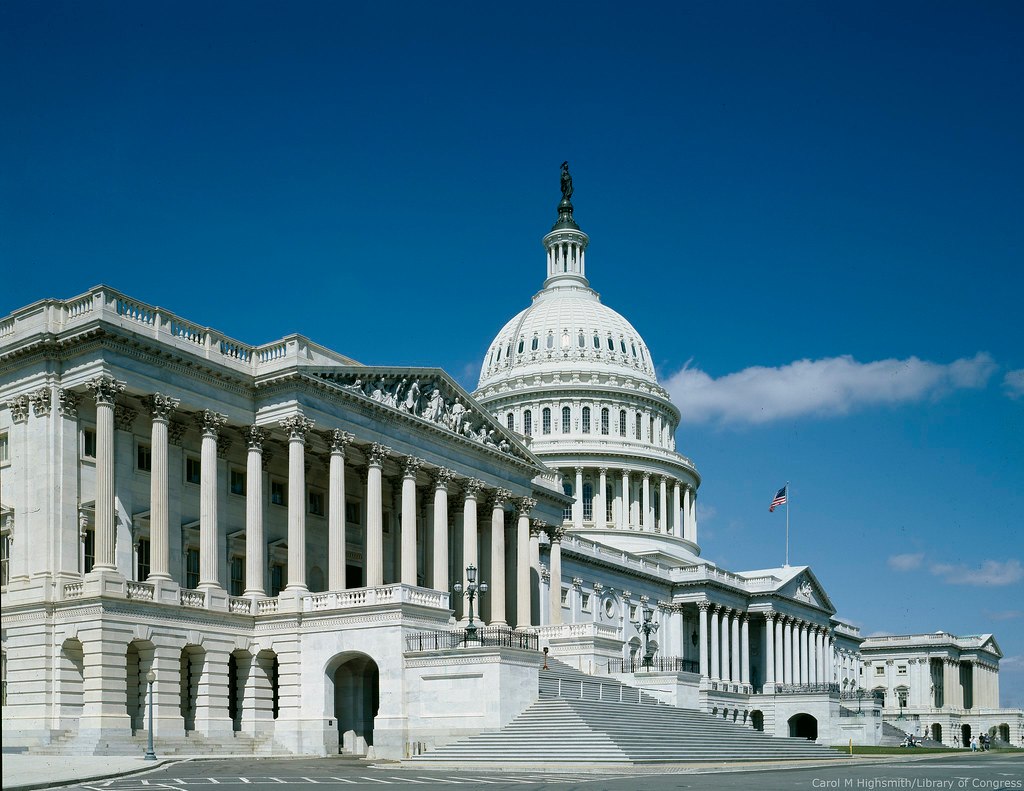
The U.S. Capitol. Photo: Carol M. Highsmith / Library of Congress
President Biden’s FY 23 Budget Demonstrates that the President Listens to Tribes and Keeps His Word on American Indian and Alaska Native Health: Now the Real Work Begins – Convincing Congress to Fund It
Source: National Indian Health Board (NIHB)
March 28, 2022 – Today, the President released his FY2023 Federal Budget demonstrating an unprecedented commitment to and investment into American Indian, Alaska Native health and public health systems and people. Specifically, the President laid out a bold, 10-year vision for the future Indian Health Service (IHS) funding as mandatory spending, and his investment targets would reach $36.7 billion by 2032. National Indian Health Board Chairman William Smith (Valdez Native Tribe) remarked, “The President is showing Tribes, through the priorities and vision he put in his 2023 Budget for Indian Health, that he is not just listening to Tribes, he is hearing us! Through this budget the President appears to be embracing a bold vision to end America’s long-demonstrated health and public health investment inequities for Tribal sovereign nations.”
The budget includes $9.3 billion in FY 2023 – this is a $2.5 billion or 37 percent increase above the FY 2022 level. Because the funding would be mandatory, it also would be tied to the medical rate of inflation, salary growth and population growth and be safe from sequestration cuts – thus ensuring that funding would grow to $36.7 billion by FY 2032, an increase of 296% across the budget window! This would create predictability, stability and adequacy in IHS funding. If enacted by Congress, these spending targets would make important, lifesaving strides toward improving the health, public health and infrastructure of the Indian/Tribal and urban health systems upon which millions of Native Americans rely and the Federal Trust Responsibility and Treaty Obligations require.
Indian Country and America will not realize any of this proposal without Congress. Only Congress can appropriate the dollars to meet the budget request. One might ask – just how important is Congress in all of this?
Put simply: Congress is the ballgame. The permanent reauthorization of the Indian Health Care Improvement Act was brought into the Affordable Care Act and, ultimately passed, because of the leadership of House Speaker, Nancy Pelosi with huge bipartisan support. The Late Congressman Don Young was a champion of every helpful legislative proposal that sought to make life better for Native Peoples and strengthened sovereignty. Yes, we know we have champions in Congress but, what happened to the IHS appropriation this year cannot happen again. Congress now has the opportunity to make huge strides to improve Tribal/Indian/Urban health systems through implementing this budget.
It is a lesson in what is proposed now vs. what happens in the end.
In fact, the President’s Fiscal Year 2022 Budget proposed the largest single-year funding increase for IHS in decades but Congress could only manage to fund IHS at $6.6 billion – literally not enough to cover inflation and population growth; so, a net loss to Indian health. Had Congress supported the President’s leadership, IHS would have received a desperately needed increase. Instead, Congress put us further behind.
We can learn how undercutting funding for American Indian health causes harm as seen in heavier disease burden, earlier death, higher addiction rates, higher infant mortality rates, the list goes on and on. “We can read about it in US Commission on Civil Rights Broken Promises Report, from the horribly inequitable damage COVID-19 has done to Indian Country, and we can learn from looking into the eyes of American men, women and children whose health care is rationed just because they are American Indian…just because they are Alaska Native. Or we can work together, all Americans, to face health care inequity and injustice head on and start working to bring the President’s funding vision for the nation’s First Americans into reality Right Now.” Said Stacy A. Bohlen, NIHB Chief Executive Officer and Citizen, Sault Ste. Marie Tribe of Chippewa Indians. She continued, “We must stop being ok, blasé’ and indifferent to keeping American Indians last in health care opportunity.”
Join the Conversation
